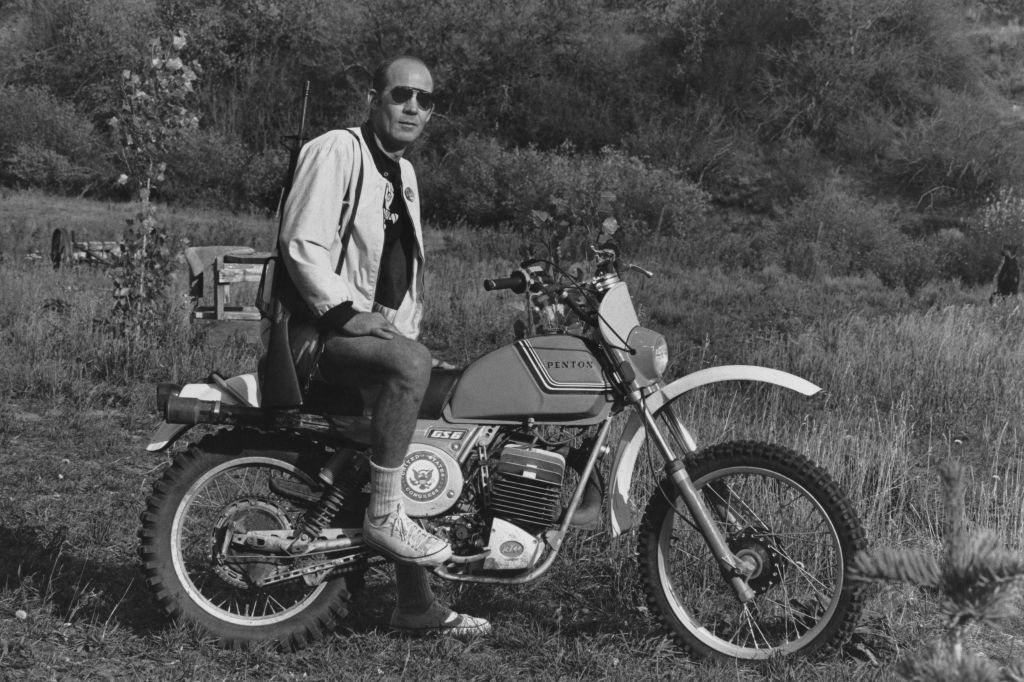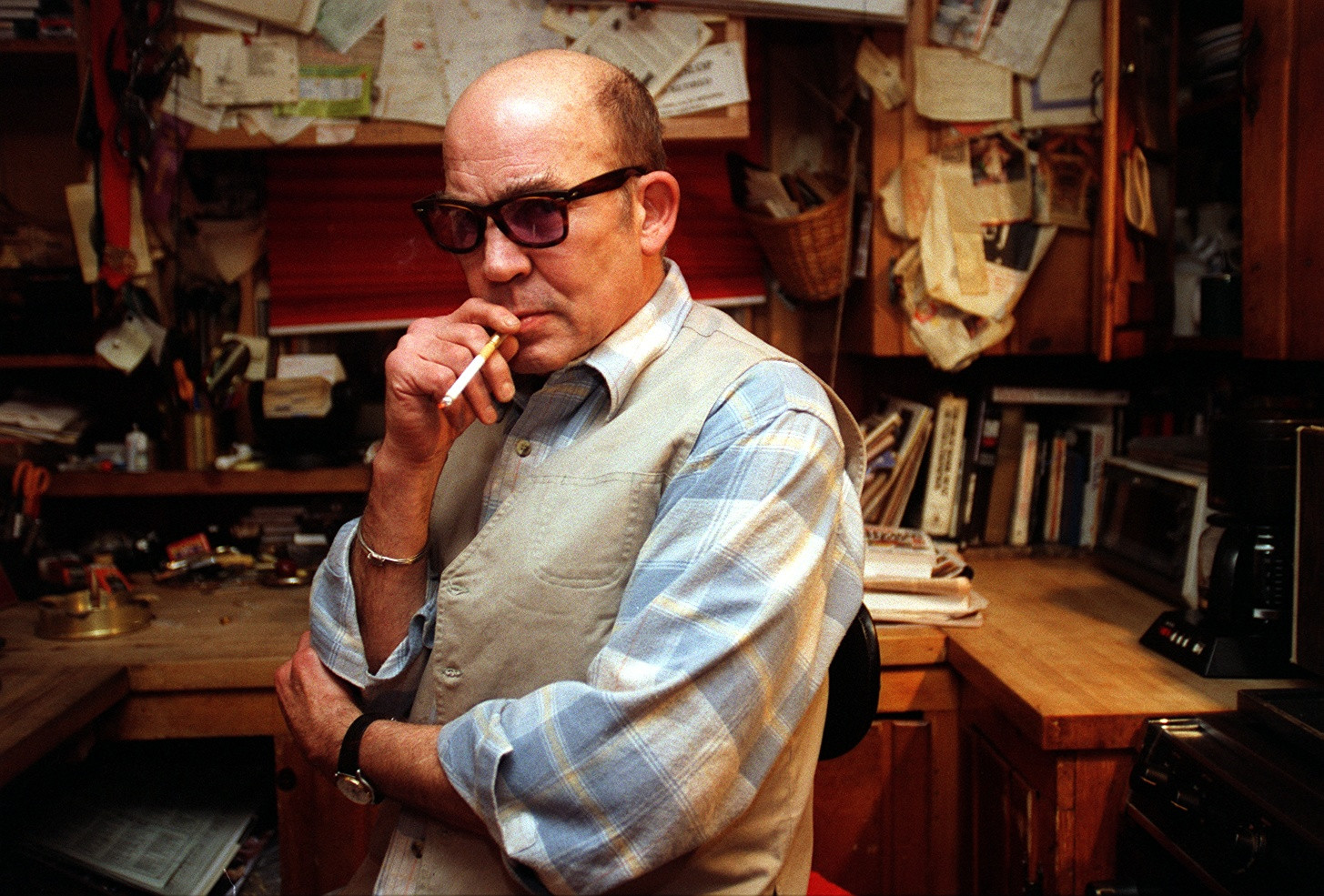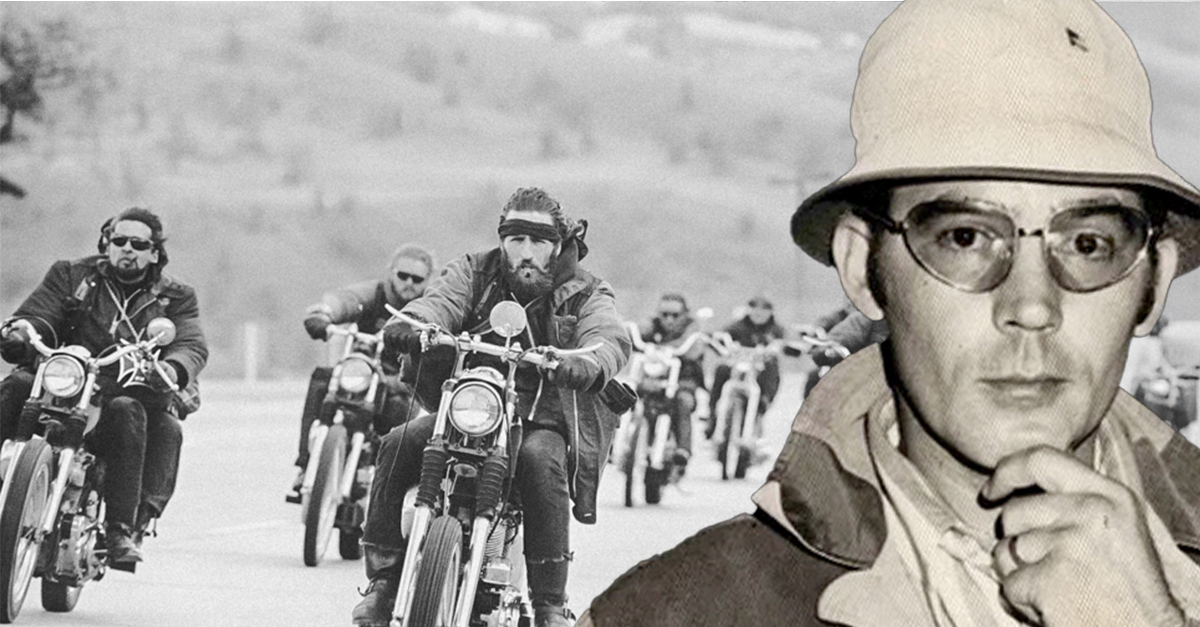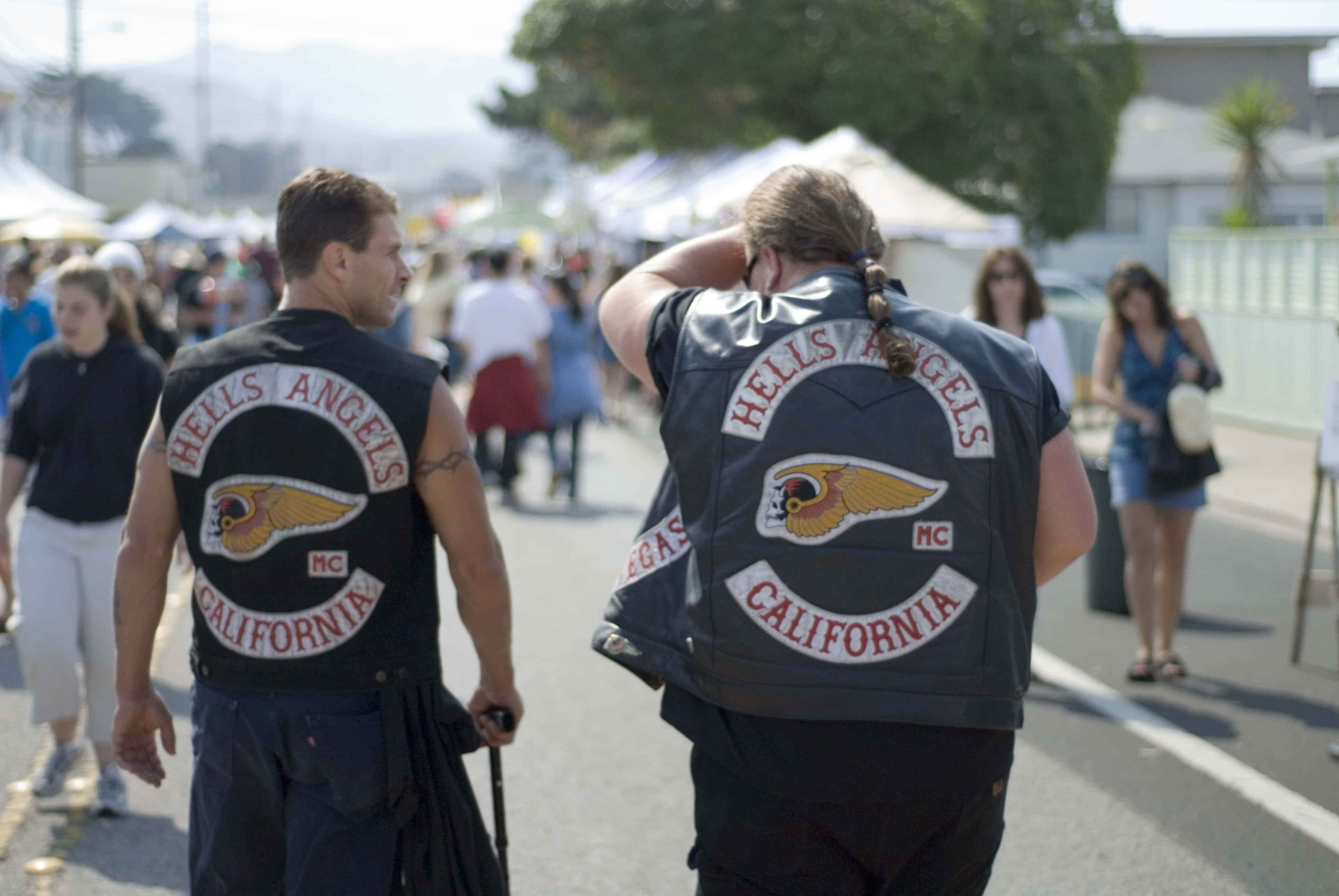Hunter S. Thompson first made his mark as a gonzo journalist with a fearless deep dive into the outlaw world of the Hells Angels motorcycle gang. His 1966 book Hell’s Angels: The Strange and Terrible Saga of the Outlaw Motorcycle Gangs wasn’t just a bold act of immersion journalism—it was a wild, dangerous ride into a culture few outsiders had ever dared to document.
He Was Drawn To Chaos
Thompson was drawn to the Hells Angels for the same reasons he would later chase political madness and psychedelic mayhem: he saw in them a raw, unfiltered reflection of American discontent. In 1965, while freelancing for The Nation, he pitched the idea of spending time embedded with the gang. His goal wasn’t just to observe—it was to understand what made them tick from the inside out.
 Michael Ochs Archives, Getty Images
Michael Ochs Archives, Getty Images
He Earned Their Trust
Gaining access to the Angels wasn’t easy. The group was suspicious of outsiders, especially journalists. But Thompson’s gruff demeanor, biker boots, and anti-authoritarian streak showed them he was no average writer. He earned their trust by hanging around bars and attending parties to prove he wasn’t a cop or snitch. He was finally allowed to ride alongside them, attend gatherings, and witness their lives up close.
He Rode With The Pack
Thompson’s time with the Angels took him all over California, particularly the Bay Area, which was a hotbed for the gang’s activities. He rode with them to parties, rallies, and drunken brawls. He chronicled their violence, misogyny, and tribal loyalty, never shying away from the darker aspects of their culture. He also found moments of unexpected insight and humanity, capturing the group as a product of postwar alienation.
His Book Shook The Nation
When Hell’s Angels was published in 1966, it was a cultural lightning bolt. Thompson’s vivid prose and brutal honesty impressed readers and critics. It was one of the first books to present outlaw bikers as complex characters shaped by their environment. The book was a hit, and it launched Thompson’s career as a new kind of journalist willing to get his hands dirty.
The Relationship Turned Sour
Despite initially accepting Thompson, the Hells Angels eventually turned on him. As media attention grew and Thompson’s book deal became public, some gang members felt betrayed. They accused him of making money off of their image. Tensions escalated, and during a party Thompson was badly beaten by several members. It was a fitting end to a volatile relationship.
He Captured The Spirit Of The Times
Thompson’s portrayal of the Hells Angels tapped into the rising counterculture of the 1960s. America was shifting, with civil rights protests, Vietnam, and a general distrust of authority creating fertile ground for rebellion. The brutal and nihilistic Angels represented a kind of anarchic freedom that fascinated and frightened the mainstream.
He Started Gonzo Journalism
Though Hell’s Angels was more traditional in style than Thompson’s later work, it laid the foundation for gonzo journalism, his trademark mix of fact, fiction, and personal chaos. By embedding himself fully in the story, Thompson blurred the line between journalist and participant, a method he perfected in later works like Fear and Loathing in Las Vegas.
 John venzel, Wikimedia Commons
John venzel, Wikimedia Commons
His Book Still Holds Up
Decades later, Hell’s Angels remains one of the most compelling portraits of American outlaw culture. Thompson’s eye for contradiction and his refusal to sanitize the truth make the book as gripping today as it was in the 1960s. It’s both a chronicle of a gang and a diagnosis of a nation, capturing a specific moment of unrest and disillusionment.
He Got Too Close And Paid The Price
Thompson’s experience with the Hell’s Angels also served as a warning about the dangers of immersion journalism. Getting too close to your subject can lead to blurred loyalties, personal risk, and emotional fallout. But for Thompson, the risk was worth it. He believed journalism had to be lived and not just reported on. Hell’s Angels proved he could do both.

History's most fascinating stories and darkest secrets, delivered to your inbox daily.
He Got A Taste For Chaos And Liked It
Hunter S. Thompson’s wild ride with the Hells Angels was the beginning of a legendary career defined by risk, rebellion, and creative innovation. To chase the story, Thompson embraced chaos and violence, and emerged with a work that allowed others to learn about a dangerous subculture that spoke of America’s restless spirit—and his own.
You May Also Like:
Peculiar Facts About Famous Writers
Infamous Facts About Truman Capote












